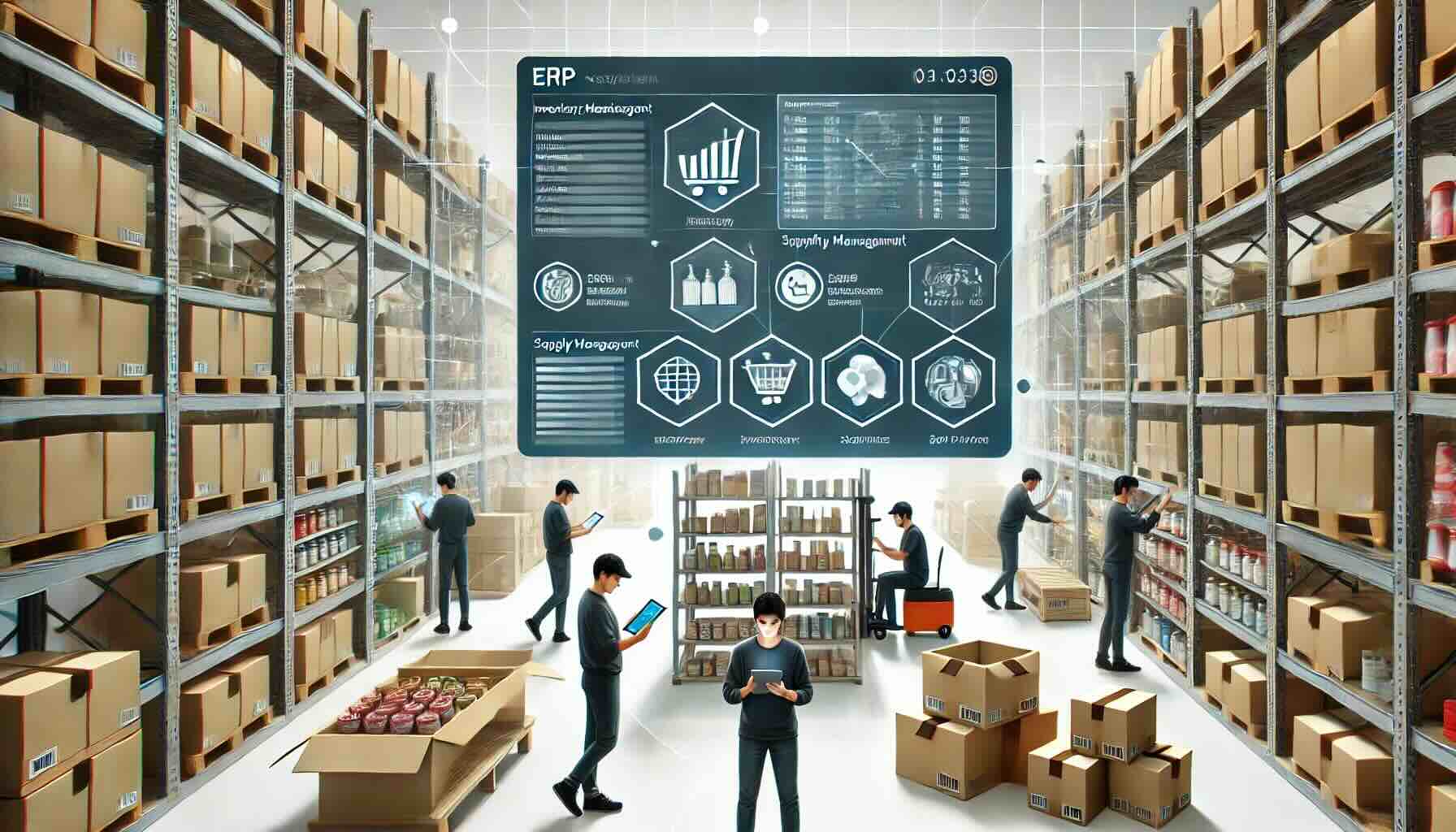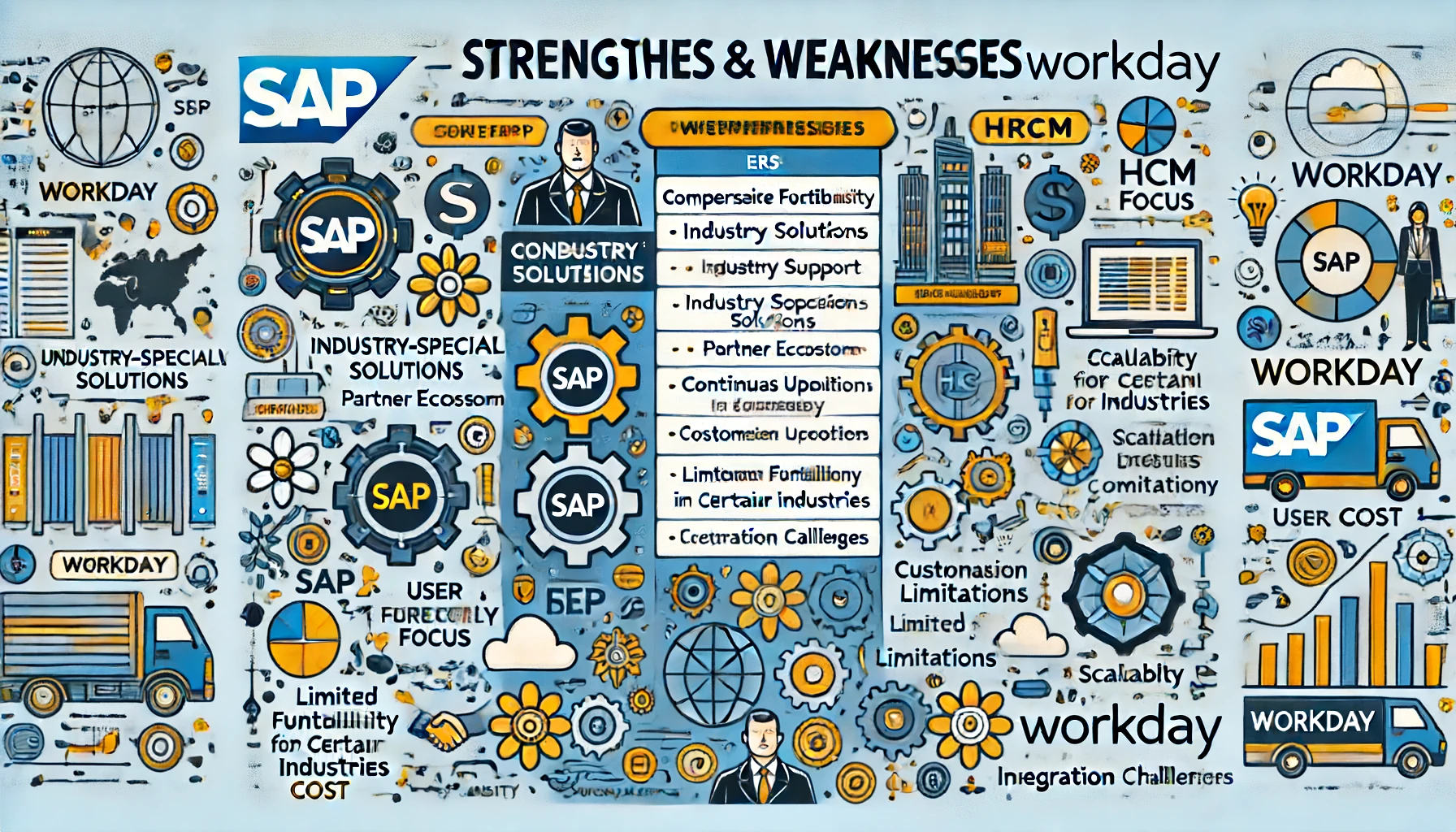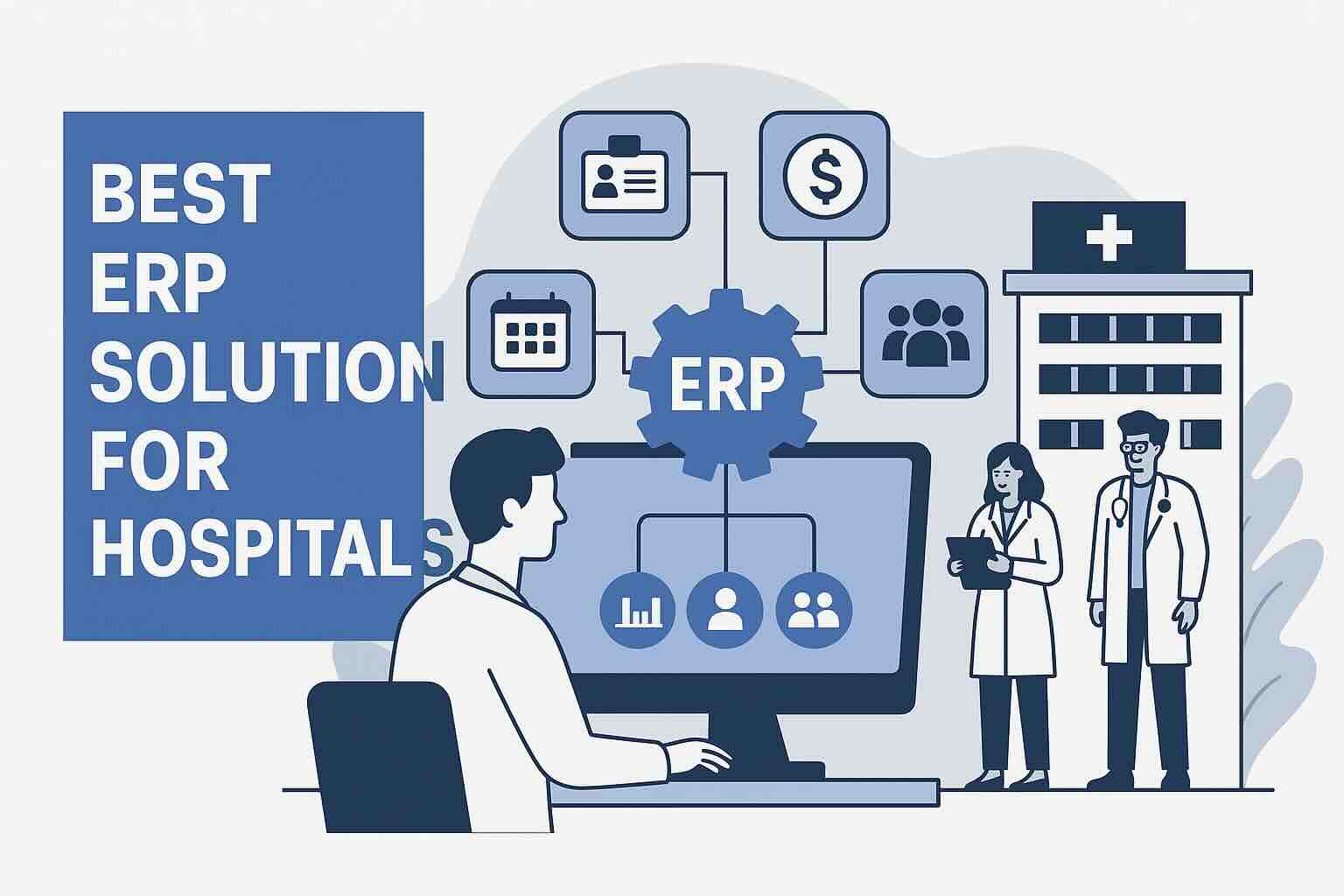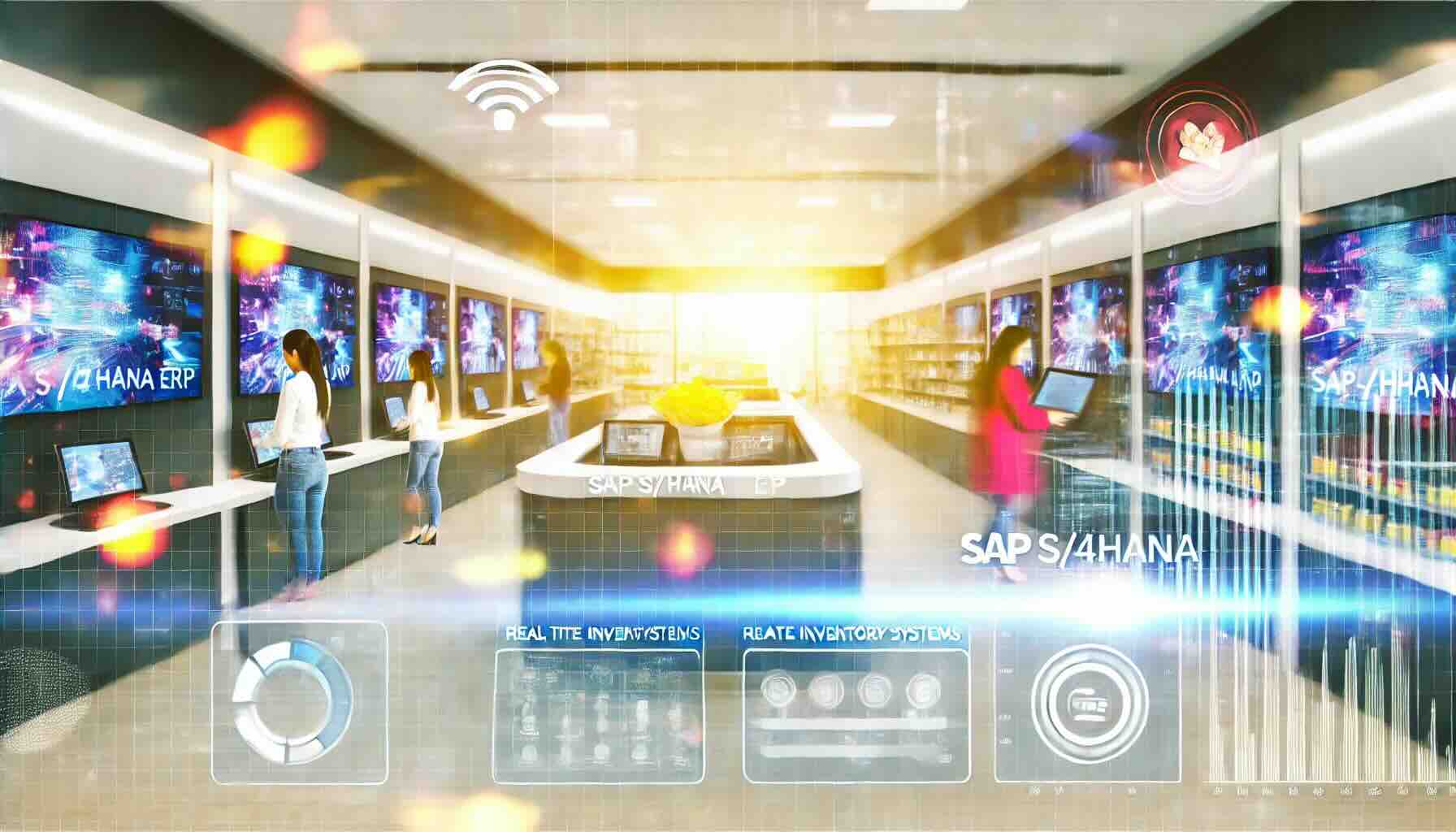Best ERP for the Consumer Goods Industry

In the consumer goods industry, efficiency and adaptability are key to staying competitive. Enterprise Resource Planning (ERP) systems play a crucial role in integrating various business processes, improving visibility, and streamlining operations. Selecting the right ERP system can significantly impact a company’s productivity and profitability. This blog will explore the best ERP for consumer goods, focusing on four leading solutions: SAP S/4HANA, Oracle Cloud, QAD, and SAP Business One. We will analyze their strengths and weaknesses to help you make an informed decision.
SAP S/4HANA
Strengths:
- Real-Time Data Processing: SAP S/4HANA offers powerful real-time data processing capabilities. This is particularly beneficial for consumer goods companies that need immediate insights into inventory levels, sales performance, and supply chain activities. Real-time data helps in making quick and informed decisions, thereby enhancing operational efficiency.
- Comprehensive Functionality: SAP S/4HANA provides a wide range of modules tailored to the consumer goods industry. These include supply chain management, production planning, sales and distribution, and financial management. This comprehensive functionality ensures that all aspects of the business are covered.
- Advanced Analytics: The system includes advanced analytics and reporting tools, enabling detailed analysis of market trends, consumer behavior, and financial performance. This helps businesses to identify opportunities for growth and improve their strategic planning.
- Global Reach: SAP S/4HANA supports multiple languages and currencies, making it ideal for consumer goods companies with international operations. This global capability ensures seamless operations across different regions.
Weaknesses:
- High Cost: The cost of implementing and maintaining SAP S/4HANA can be prohibitive, especially for small to mid-sized companies. The licensing fees, implementation costs, and ongoing maintenance require significant financial investment.
- Complex Implementation: Implementing SAP S/4HANA is complex and time-consuming, often requiring dedicated IT resources and expert consultants. This complexity can delay the realization of benefits.
- Customization Challenges: While SAP S/4HANA is highly functional, customization can be limited and may require additional development to meet specific business needs.
- User Training: The system’s complexity necessitates extensive user training, which can be time-consuming and costly. Ensuring that all employees can effectively use the system can be a challenge.
Click this link to find out more about SAP S/4HANA for consumer goods.
Oracle Cloud
Strengths:
- Comprehensive Suite: Oracle Cloud offers a comprehensive suite of applications, including finance, HR, supply chain, and customer management, tailored to the needs of consumer goods companies. This ensures that all business processes are integrated and streamlined.
- Scalability: The platform is highly scalable, supporting both small and large operations and enabling easy expansion as the business grows. This scalability ensures that the system remains effective as the company evolves.
- Advanced Security: Oracle Cloud provides top-tier security features, ensuring the protection of sensitive data and compliance with industry regulations. This is crucial for maintaining consumer trust and safeguarding business operations.
- Real-Time Analytics: The system offers real-time analytics, giving companies immediate access to critical operational data and insights. This helps in making informed decisions and improving overall efficiency.
Weaknesses:
- Cost: Oracle Cloud is a significant financial investment, with high licensing and implementation costs that may be prohibitive for smaller companies. The ongoing maintenance and support costs can also add up.
- Complex Implementation: The implementation process can be complex, requiring expert guidance and a dedicated IT team. This complexity can result in longer implementation times.
- Customization Challenges: Customizing Oracle Cloud to meet specific business needs can be challenging and time-consuming, potentially requiring additional development resources.
- User Training: Extensive user training is necessary to fully utilize the system’s capabilities, which can be a time-consuming and costly process.
Click this link to find out more about Oracle Cloud for consumer goods.
QAD
Strengths:
- Industry Focus: QAD is designed specifically for manufacturing and distribution, making it highly suitable for consumer goods companies. It offers specialized modules for production, inventory management, and supply chain operations.
- Flexibility: QAD is known for its flexibility and ability to adapt to various business processes. This flexibility allows companies to customize the system according to their specific needs.
- Cloud and On-Premise Options: QAD offers both cloud-based and on-premise deployment options, giving companies the freedom to choose the best fit for their infrastructure and security requirements.
- Global Capabilities: QAD supports multiple languages and currencies, making it ideal for global operations. This ensures seamless integration and operations across different regions.
Weaknesses:
- Limited Market Presence: Compared to larger ERP providers, QAD has a smaller market presence, which may limit its support and resources in certain regions.
- Complexity: The system can be complex to implement and manage, requiring skilled IT resources and potentially, external consultants.
- Customization Costs: While QAD is flexible, extensive customization can incur additional costs, particularly for smaller companies with limited budgets.
- Integration Challenges: Integrating QAD with other software systems can be challenging and may require additional development efforts.
Click this link to find out more about QAD for consumer goods.
SAP Business One
Strengths:
- Affordability: SAP Business One is designed for small to mid-sized businesses, offering a more affordable solution compared to SAP S/4HANA. This makes it accessible for companies with limited budgets.
- Ease of Use: The system’s user-friendly interface makes it easy for employees to learn and use, reducing the training time and increasing productivity.
- Comprehensive Features: Despite its affordability, SAP Business One offers comprehensive features, including inventory management, financial management, and customer relationship management. This ensures that all key business processes are covered.
- Integration with SAP Solutions: SAP Business One integrates seamlessly with other SAP solutions, providing a path for growth and expansion. This ensures that companies can scale their operations as needed.
Weaknesses:
- Limited Scalability: While suitable for small to mid-sized businesses, SAP Business One may not scale as effectively for large enterprises with complex needs.
- Customization Challenges: Customizing SAP Business One to meet specific business requirements can be challenging and may require additional development efforts.
- Support Limitations: Support options for SAP Business One may be limited compared to larger SAP solutions, potentially impacting the level of service available.
- Integration Challenges: Integrating SAP Business One with non-SAP systems can be difficult, requiring additional resources and technical expertise.
Click this link to find out more about SAP Business One for consumer goods.
Conclusion
Choosing the best ERP for consumer goods companies depends on the specific needs, resources, and goals of the organization. SAP S/4HANA, Oracle Cloud, QAD, and SAP Business One each offer unique strengths and face certain challenges. By carefully evaluating these factors, consumer goods companies can select an ERP system that enhances their operational efficiency, customer satisfaction, and overall business performance.
To compare these ERP solutions and many more, you can use our new AI-powered Compare ERP tool. It’s free to use and you get a guaranteed discount on your first year’s licence fees with a referral from Compare ERP.









